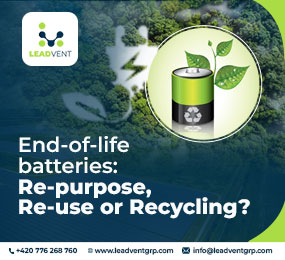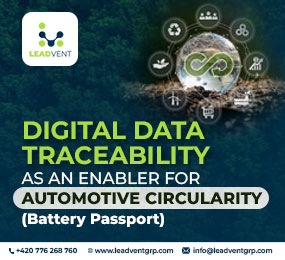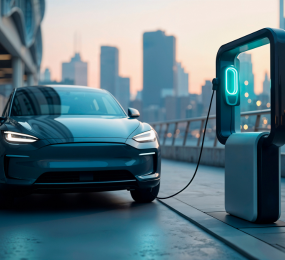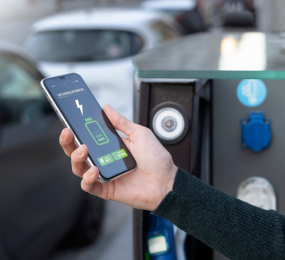The growing ownership of electric vehicles (EVs) across Europe has posed one serious problem that is rapid. This has made the sustainable recycling of EV batteries even more important in the current world. This will be because, as the number of electric vehicles increases, something has to be done about battery waste. To address this, the European Union (EU) has put into place regulations. These projections aim to assure that EV battery recycling companies would form the central tenet of the overarchingly green transition.
General Information on European Battery Regulations
The rules that the EU has set for batteries for EVs are aimed mainly at sustainability. It embarks on all the processes of the battery, from its manufacture to its disposal. Some new rules are intended to help minimise dependence on imported raw materials. They also reduce emissions, services, and negative environmental effects, coupled with a sustainability edge. The key elements of these rules are:
- Mandatory Recycling Targets: Specific to 2030, irrespective of the type of car, 15 percent of these metals, such as lithium and cobalt, have to be recycled.
- Battery Passport Initiative: From 2027, all batteries that are placed on the EU market will need to come with a digital passport. It includes how it was recycled, the amount of recycled product, and its carbon footprint statistics.
- Extended Producer Responsibility: Manufacturers need to bear the responsibility of managing every phase of the battery’s life cycle. This involves keeping, gathering, as well as reusing used batteries.
The Rising Importance of Recyclable Batteries in EVs
Due to continually growing rates of EV adoption, recycling solutions are becoming increasingly imperative. EV batteries hold resources that have their value. Recycling them minimises the extent to which new mining will be required. Here are some key statistics:
- Europe’s demand for lithium-ion battery recycling will exceed 130 GWh by 2030. This is equivalent to the total waste produced by 720 thousand kilotons of batteries.
- The recycling of EV batteries could supply 14 percent of Europe’s need for lithium. It could satisfy 16 percent of nickel requirements and 25 percent of cobalt needs by 2030.
EV Battery Recycling Companies are working on a new path of recycling batteries into the economy to be remanufactured. They assist in cutting emissions and getting the necessary components for further batteries.
The Hurdles in EV Battery Recycling
The EU has set impressive targets, although there are challenges ahead. Here are some key hurdles:
- High Costs: Recycling EV batteries are, however, laborious and energy-consuming. Recycling is an expensive affair; therefore, when the cost of energy is high, as is the case in Europe, the expansion of recycling is challenging.
- Limited Recycling Infrastructure: The new capacity required will not be met from the current levels in the EU since the current capacity of recycling is inadequate to meet the requirements in the future.
- Technological Barriers: The process of mining minerals for useful resources while minimising the impact on ecology can only be achieved through innovation. Now, a number of firms are in the process of building such solutions.
Case Study: Altilium’s Recycling Initiative
A UK-based company named Altilium focuses on Electric Vehicle Battery recycling. By 2026 it is set to recycle 24,000 battery packs per year. They aim to expand this number to one and a Half half lakh packs by 2030. It has a partnered deal with Jaguar Land Rover. They are looking for the possibility of using recycled materials for EV batteries.
The Second Edition of the Annual Electric Vehicle Battery and Recycling Forum
To meet these challenges, Leadvent is organising an important event. The Annual Electric Vehicle Battery and Recycling Forum's 2nd Part is planned for 26 & 27 February 2025, in Amsterdam, Netherlands. They all expect this event, the Battery Recycling Conference, will pool key players in the industry, regulators, and other professionals.
Event Highlights
- Expert Panels: Hear from leading authorities on everything currently known about EV battery recycling.
- Interactive Workshops: Learn about new technologies for recycling in practical workshops.
- Networking Opportunities: You can find decision-makers from different fields.
Who Should Attend?
- EV manufacturers
- Battery recycling companies
- Policymakers and regulators
- Environmental organisations
- Investors interested in funding environmentally sustainable plans
FAQs
Q1: What are the primary rules of battery regulation under the new EU legislation?
A1: The regulations call for Electric Vehicle Battery recycling goals, bring about a digital battery registration number, and direct manufacturers to manage life-cycle costs.
Q2: What are the reasons for EV battery recycling?
A2: The EV battery owns some expensive metals, such as lithium, cobalt, and nickel. These are recycled, which aids in reducing the need for mining, hence the impacts on the environment.
Q3: What’s in it for companies that attend the 2nd Annual Electric Vehicle Battery and Recycling Forum?
A3: Regulatory changes, new technologies, and meeting and interacting with important stakeholders are the reasons firms gainfully attend these forums.
Conclusion
Battery regulations are a new phenomenon that is influencing the European EV market. They focus on environment-friendly methods. All these problems are not yet solved, but solutions are being developed. The 2nd Annual Electric Vehicle Battery and Recycling Forum presents a rare opportunity for competitors to keep abreast with the Battery Recycling Conference. It is a chance to teach and learn and to help create a world in which people become more environmentally friendly.












